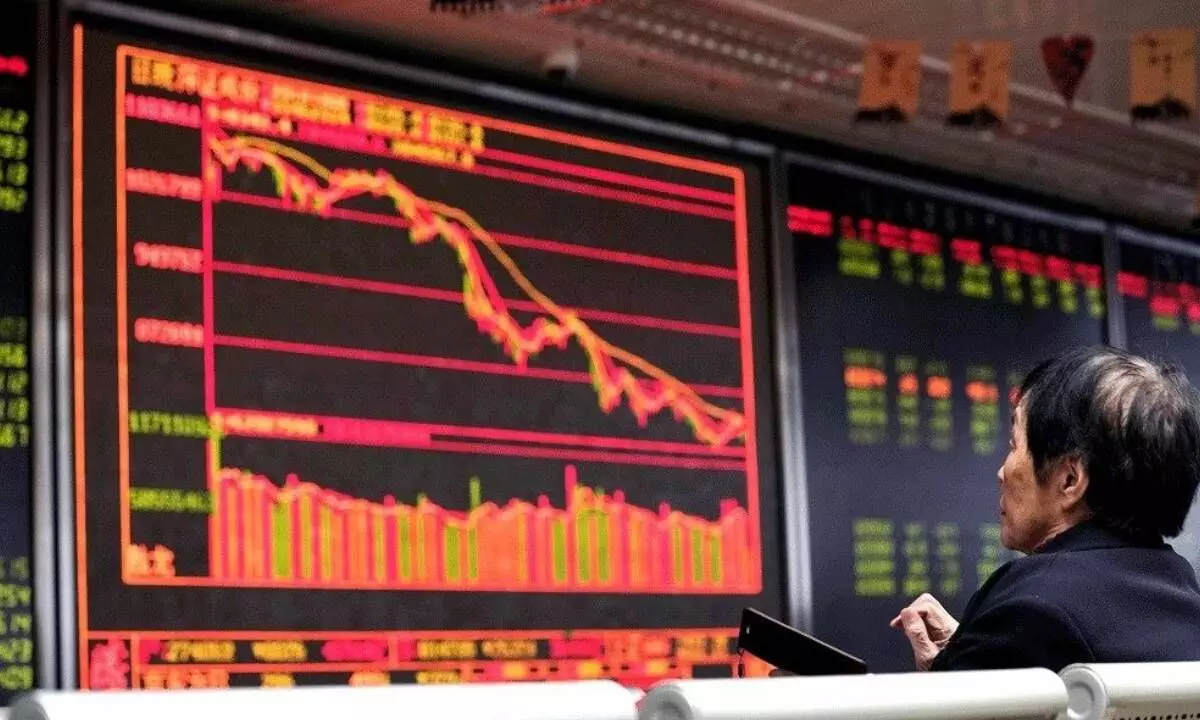Global stocks fall on Russian mutiny reports
Benchmarks declined in Tokyo, Sydney, Hong Kong and Shanghai, but rose in Seoul
image for illustrative purpose

Tokyo Global shares mostly fell Monday after a short-lived armed rebellion in Russia added to uncertainties over the war in Ukraine. France’s CAC-40 dipped 0.4 per cent in early trading to 7,135.23. Germany’s DAX slipped 0.2 per cent to 15,797.27. Britain’s FTSE-100 fell 0.8 per cent to 7,403.10. The futures for the Dow Jones Industrial Average and S&P-500 futures were down 0.2 per cent.
The rebellion by mercenary soldiers who briefly took over a Russian military headquarters on an ominous march toward Moscow was over. But the brief weakened President Vladimir Putin just as his forces were facing a fierce counteroffensive in Ukraine. Yevgeny Prigozhin and his Wagner troops were some of Russia’s most effective fighters in Ukraine. Their aborted takeover of the capital also left their fate uncertain. Tim Waterer, chief market analyst at KCM Trade, said such geopolitical uncertainties have set off a cautious mood.
“On the back of recent hawkish central bank moves amid high inflation and low growth environments, investors are now also having to factor in the chance of escalation on the geopolitical side of things, which is adding another layer of uncertainty to the equation,” he said.
Investors have been rattled, also by signs that Europe’s economy appears to be weaker than expected and by still more interest rates by central banks as they try to get inflation under control. High rates drive down inflation by slowing economic activity, which raises risks of recession.
In Asian trading, Japan’s benchmark Nikkei 225 lost nearly 0.3 per cent to finish at 32,698.81. South Korea’s Kospi rose 0.5 per cent to 2,582.20. Hong Kong’s Hang Seng was down 0.5 per cent to 18,794.13, while the Shanghai Composite, reopening after a holiday, dropped 1.5 per cent to 3,150.62. Australia’s S&P/ASX 200 shed 0.3 per cent to 7,078.70.
“We have a slowing US economy, a slowing global economy, all with on-going extreme inflation and high and going higher interest rate levels. There is no bullish stock market scenario here,” said Clifford Bennett, chief economist at ACY Securities.
High interest rates in the United States have already dragged manufacturing and other industries into contraction, while also helping to cause several failures in the banking system that rattled confidence.

